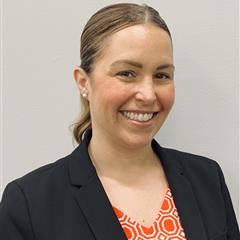
In 2022, the California Department of Education selected the Orange County Department of Education to lead the development of three model curriculum projects centering on the Cambodian, Hmong and Vietnamese American history, culture and refugee experiences.
While the curricula will not be mandatory, each will present ideas and examples for school districts to consider as they develop their own coursework.
The projects were initiated in response to Senate Bill 895, which was signed by then-Governor Jerry Brown in 2018 after it was approved by the Legislature. Citing academic research on the importance of culturally meaningful and relevant curriculum, the bill set out to provide a template for K-12 lessons about Vietnamese American refugees and their experiences in the United States after the fall of Saigon in 1975.
Since its introduction, the legislation has expanded with amendments to include lessons on the Cambodian genocide and Khmer history and culture through oral testimonies by survivors. It also directs the development of lessons on Hmong history and culture that will include the Hmong migration to the United States and California, along with practices and traditions.
The legislation calls for inclusion of authentic voices and perspectives leading to the development of the model curriculum by September 2024. Along the way, there will be multiple opportunities for the department to engage with community groups and members through town halls, focus groups and listening sessions.
The curriculum may be used as part of history, social studies or language courses, or included in a district’s ethnic studies program.
Curriculum writers wanted
OCDE will continue to collaborate with community groups, researchers and educators to develop the model curriculum, which will include a collection of lesson plans, primary source documents, planning resources, teaching strategies and professional development activities to assist educators in rolling out the projects.
The department is looking to hire more writers with experience in teaching K-12 students, knowledge of lesson planning, interest in the project, and are able to attend a virtual five-day workshop in July. If you are interested in applying, complete this form before May 15.
After the projects are completed, OCDE will lead three statewide conferences to introduce and train educators on the curricula. These will be opportunities for educators and administrators to learn about the projects and how they can be implemented in their schools.
Leading the projects

OCDE’s History and Social Studies Manager Dr. Marika Manos is leading this charge. With more than two decades dedicated to education, she says the curriculum can help students connect with their peers as they better understand the histories, experiences and cultures of the Khmer, Vietnamese and Hmong people.
“The shared human experience is something we don’t always center,” said Dr. Manos. “We don’t always see the fact that we are so much more similar than we are different.”
She said she feels a connection to her work with the department and the model curriculum projects, having grown up in Orange County and taught students in the Long Beach Unified School District.
“Many of my students came from Khmer descent, and there was a very limited time when we were able to talk about the Khmer experience,” said Manos. “It’s hard to grow up in a place where you don’t see yourself in the curriculum. It’s hard to imagine that the only time you see yourself is in the context of genocide or war.”
Manos believes the curriculum will provide opportunities for students to see themselves and understand others.
